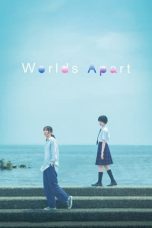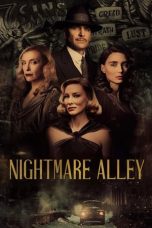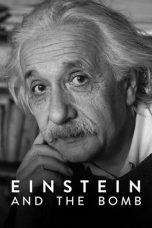- Source: Words Words Words
- Source: Words, Words, Words
Words Words Words refers to both a stand-up comedy routine and the second album by American comedian Bo Burnham. The live performance debuted at the Boston House of Blues on May 21, 2010, and the album is derived from a special live performance of the same set at Carolines on Broadway on June 30, 2010. In addition to the Carolines performance, the album has two studio singles, "Words, Words, Words" and "Oh Bo".
The House of Blues debut performance and the Carolines on Broadway performances were released on DVD and MP3/CD, respectively, with the constituent material from the set being generally well received. The album alone charted on four separate Billboard charts, topping out at number one on the Billboard Comedy chart.
Synopsis
Bo steps out on stage to a round of applause and thanks the audience. He performs a “heigh-ho” call-and-response with the audience, then likens the circumstance to Nazi chants. He sings “What’s Funny”, which warns that the show will be highly offensive, before the song delves into the nature of comedy and criticisms of stand-up tropes, with Bo repeatedly and maniachly complaining about his apparent ex-wife, radical feminism, life problems, and sexual frustration.
Bo performs some traditional stand-up about various contentious topics—an ex-girlfriend with a dead mother, realism and the symmetry of life, racial politics, denying homeless people change, and ‘yo mama’ jokes. He then professes that women are always right and sings “Men & Women”, which repeatedly insults men while praising women. The stand-up continues, with Bo discussing his success and history as a ‘young comedian’ and reenacting absurd scenes from various shows he has performed in, though he admits none of them are real. Bo sings “Ironic” about comedic paradoxes, before telling more rapid-fire jokes about the meaning of art and the questionable morals of Disney, but is interrupted by insistent sexual harassment from hecklers in the audience. He raps “Words Words Words”, consisting of contentious wordplay, then initiates a group prayer with the audience which mocks Christianity. Bo jokes about starvation in Sub-Saharan Africa, then tells the audience that he is going to read some original introspective haikus before going back to comedy—which all end up being unserious with crude punchlines.
Bo recites a sonnet from the perspective of William Shakespeare writing pornography, then freestyle raps criticising Shakespeare while adopting his writing style. He promises a song about quantum mechanics which ends up being key mashing, then one about Christian Hell which is a single line about Adolf Hitler and the Jews awkwardly meeting. Bo sings “Rant” which further criticises Christianity and expresses his disinterest in Church as a child, before performing an intentionally dry set about theoretical physics. He jokes about gay marriage and white exceptionalism, then reads out some facetious statistics, but the audience reacts poorly to “0.27% of Jenga games are played on 9/11”. After some prop comedy with a drum kit, he sings the jokeless song “Art is Dead”, about how entertainers are rewarded for never growing out of attention seeking, his addiction to attention and getting paid for it, unworthiness of fame, the effects of capitalism on art, and how the audience should not respect him—which is met with cheers and applause. Bo brings up that his stage act is not conventional, and once again mocks traditional stand-up comedy by repeatedly bringing up his apparent loveless marriage.
He sings “Oh Bo”, satirizing modern hip hop tropes by bragging about his increasingly ridiculous sexual encounters, “I’m Bo Yo”, bragging about how he is the greatest rapper ever while mocking rap music, and “Love Is…”, an absurd sardonic love song. The audience gives a final round of applause as Bo waves and walks off the stage, ending the taped show.
Stand-up show
Burnham debuted his stand-up routine, Words Words Words, at the Boston House of Blues on May 21, 2010 (postponed from April 16, 2010). This was recorded as the inaugural performance of Comedy Central's "House of Comedy Live from House of Blues" series. Burnham shared his debut evening at the House of Blues with fellow stand-up comedian Myq Kaplan. The one-hour special of Words Words Words aired on October 16, 2010, to over 700,000 viewers, and was released on an unrated one-disc DVD three days later (October 19). As of December 2010, Burnham was the youngest artist to garner his own hour-long special on Comedy Central. The DVD is presented in anamorphic widescreen and Dolby Digital 5.1 surround sound and has, in addition to the special, two music videos for the songs "Words, Words, Words" and "Oh Bo".
In August 2010, Burnham was nominated for "Best Comedy Show" at the 2010 Edinburgh Comedy Awards—"the world’s most prestigious comedy prize" with a £10,000 cash prize—after his performance of Words Words Words at the 2010 Edinburgh Fringe Festival. He was instead awarded the "Panel Prize"—carrying a £5,000 prize—for "the show or act who has most captured the comedy spirit of the 2010 Fringe".
Album
Words Words Words was released by Comedy Central Records as a music download on both Amazon.com and the iTunes Store on October 18, 2010, and on a single Compact Disc on October 19, 2010. All live tracks for the CD were recorded at Carolines on Broadway on June 30, 2010.
Track listing
Reception
Critical response to Words Words Words, both the album and DVD, has been mostly positive. Francis Rizzo III, of DVD Talk, praises Words Words Words, citing Burnham's excellent wordplay coupled with an age-defying stage presence and fluidity. SanDiego.com's Gordon Downs spoke highly of Words Words Words; after describing the two studio songs as "sounding like a modern day Ray Stevens coupled with the slick production of a Yes album", Downs lauded the live set's flow and energy and Burnham's skill with his material. Bill Brownstein of Montreal's The Gazette praised Burnham's wit claiming "[h]e could be the love child of Allen Ginsberg and George Carlin. And there's no telling what kind of comedy monster he can morph into by the time he hits 30 – even 25."
Allmusic's David Jeffries said of the album, "...if you happen to enjoy the way Burnham turns from erudite to ignorant on a dime, then Words Words Words is the gift that keeps on giving. Things move fast in this act, giving the home listeners a distinct advantage over the audience captured here, who often seem to be laughing five seconds after the fact as they unravel the wordplay. ... Hilarious, plus you get the thrill of feeling smug and horrible at the very same time."
About.com's Patrick Bromley again praised Burnham's dense wordplay and cleverness, but felt that the artist was simply re-treading the same ground without making any significant advances. Whereas Bromley saw Burnham's from-the-bedroom charm as a boon to 2009's Bo Burnham, he opined the re-invention as a self-aware brash wunderkind was not an improvement. In contrast to any perceived deficiencies in the music, Bromley felt the traditional stand-up tracks to be the distinguishing factor of the album.
= Chart positions
=The Words Words Words album is Burnham's first album to break into the Billboard top 40 charts, and sold over 10,000 copies in its first week. However, on the second week, the album fell 121 places to number 161 (selling only 3,000 copies).
References
Words, Words, Words is a one-act play written by David Ives for his collection of six one-act plays, All in the Timing. The play is about Kafka, Milton, and Swift, three intelligent chimpanzees who are put in a cage together under the experimenting eye of a never seen Dr. Rosenbaum, a scientist testing the hypothesis that three apes hitting keys at random on typewriters for an infinite amount of time will almost surely produce Shakespeare's play Hamlet (a variation on the infinite monkey theorem). The show's title is a phrase quoted from Hamlet. The performance comprises the ape characters humorously confronting and conversing with each other in order to understand the purpose of the exercise put upon them.
Although clearly a comedy, the ending tone of the play can differ much from production to production, and generally will depend on the actor's (and director's) interpretation of the Swift character. Swift drives the action, with his rebellion to Dr. Rosenbaum and his experiment, with Milton acting as either a friend or antagonist trying to convince Swift to go along with and use the system. (Swift: "Why are you so god-damned ready to justify the ways of Rosenbaum to the apes?") The portrayal of Swift is always different, but generally falls into either tragic or comic territory. If Swift's plans for revenge are portrayed comically, then they point out the folly of Hamlet's plan to ensnare the King, deepening the parody of Shakespeare's most celebrated work. If performed dramatically, the play leaves Swift as the tragic hero, a Cassandra figure unappreciated by his colleagues, going mad in captivity. In either case, Kafka ends the play on a notion of hope, as she is the one who spontaneously begins to successfully type the opening lines of Hamlet, comically juxtaposed against Swift who merely ponders in silence and Milton who aimlessly types the words "hemorrhoid", "pomegranate", and "bazooka".
Characters
Milton is the most realistic of the three; he knows what has to be done and knows how to do it. The rough draft on his typewriter involves the opening lines from Paradise Lost (written by John Milton in 1667), though it concludes with nonsensical words.
Swift (also called "Swifty") is ambitious and something of a rebel. He figures out far-fetched plans to break out of the cage, despite Milton's sarcastic and annoyed discouragement. He is the most philosophical, though his writing reflects only utter nonsense.
Kafka (also called "Franz") is the dreamer. She has only managed to press one button on her typewriter repeatedly, and has done so for twenty lines. She likes to put her two cents in, but rarely uses very big words. Kafka plays the naïf (and is the only female of the trio), agreeing that the experiment is stupid, but hoping for a great reward if she succeeds. By the end of the play, she begins to type the first act of Hamlet after being inspired by Swift's suggestion to poison Dr. Rosenbaum.
Productions
Words, Words, Words premiered in January 1987, in the Manhattan Punch Line Theatre in New York City. It starred Warren Keith as Milton, Christopher Fields as Swift, and Helen Greenberg as Kafka.
It was combined with other plays such as Sure Thing and Philip Glass Buys a Loaf of Bread in a production of six one-act plays, comprising All in the Timing, Off-Broadway at Primary Stages, running from November 1993 to February 1994. Daniel Hagen played the role of Milton, Robert Stanton played Swift, and Nancy Opel played Kafka.
All in the Timing was revived at Primary Stages in 2013.
Along with Sure Thing and The Philadelphia, Words, Words, Words is one of the one-acts which is almost always included in productions of All in the Timing. (Recent printings of All in the Timing include upwards of twenty separate plays.)
References
External links
All in the Timing, 1993 Internet Off-Broadway Database
All in the Timing, 2013 Internet Off-Broadway Database
Warren Keith at IMDb
Christopher Fields at IMDb
Helen Greenberg at IMDb
Kata Kunci Pencarian:
- Kotonoha no Niwa
- Three Little Words
- Words of Silk
- Images and Words Demos
- Dr. Wai in "The Scripture with No Words"
- Words of Farewell
- Model tas-kata-kata
- Gentle Words
- Images and Words: Live in Tokyo
- The Words Don't Fit the Picture
- Words Words Words
- Profanity
- English language
- Words, Words, Words
- Inherently funny word
- Seven dirty words
- Longest words
- Longest word in English
- The Words (film)
- Fourteen Words
Nightmare Alley (2021)
No More Posts Available.
No more pages to load.










